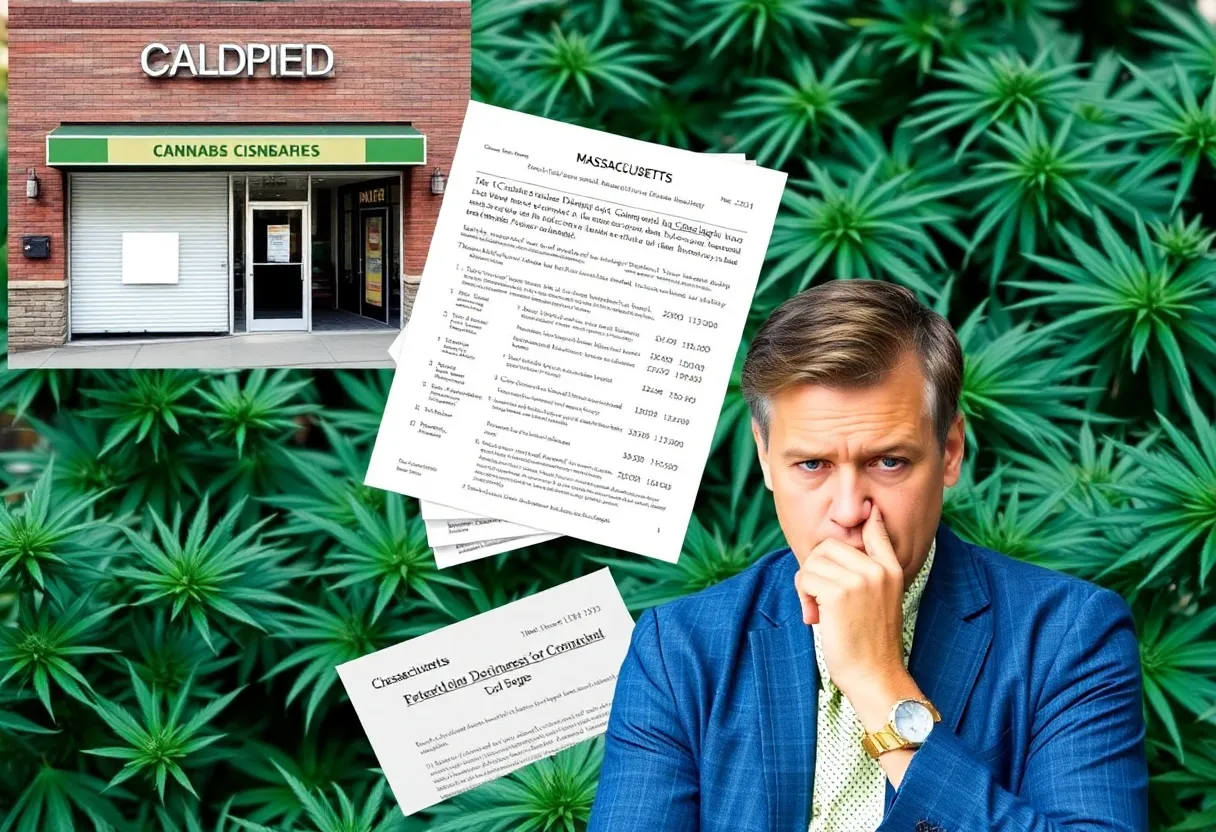News Summary
The cannabis industry in Massachusetts is encountering a financial crisis as many businesses struggle to survive. Despite initial optimism with record sales and increased harvests, companies are faced with crippling debts, intense competition, and regulatory challenges. Many dispensaries are either closing their operations or looking to sell, compounded by high operational costs and taxation issues. Stakeholders are advocating for financial relief as they navigate these turbulent times in an oversaturated market.
Holyoke, Massachusetts – Cannabis Industry Faces Crisis as Businesses Struggle for Survival
The cannabis industry in Massachusetts is facing a severe financial crisis as numerous businesses struggle to remain operational. This downturn follows a period of initial optimism, where sales for cannabis reached over $1.6 billion in 2024, and marijuana harvests tripled in the past five years. However, the reality is stark: many cannabis ventures are encountering crippling debt and intense market competition, leading to an alarming number of dispensaries seeking to sell or close altogether.
Marco and Amanda Aranzullo, owners of Euphorium Dispensary, exemplify the challenges facing cannabis entrepreneurs. After launching their business with limited resources, they found themselves $85,000 in the hole due to a construction dispute, prompting a move from Northampton to Holyoke. Despite their efforts, the Aranzullos are in a precarious position, having spent their last funds on exorbitant insurance costs as they opened their doors in July. With no money left, they face a pressing need to pay a $30,000 fee to renew their licenses to operate, further complicating their ability to continue.
Industry experts highlight that less than one-third of cannabis businesses in the United States report profitability, with many struggling under burdensome debt. Cannabis businesses now owe at least $6 billion in maturing debt nationwide, and Massachusetts is no exception, where over 60 marijuana businesses have either downsized or closed, with more than a third of these businesses shuttering in the past year alone. The imbalance between supply and demand worsens the situation, as growers produce approximately 2 million pounds more than consumers purchase annually. Consequently, dispensaries have resorted to unsustainable pricing strategies, with some reporting meager daily sales figures of around $2,000.
The current crisis is further exacerbated by the persistent issue of federal illegality concerning cannabis, which restricts access to essential business resources such as standard bank loans and tax benefits. This legal gray area deters traditional investors from entering the cannabis market due to concerns over potential federal crackdowns, leading many businesses to rely on high-interest, short-term loans to operate. As a result, small-dollar investors and family supporters often find themselves facing unfulfilled repayment expectations.
Additional hurdles for cannabis businesses include high operational costs and the burden of impact fees imposed by state and local governments, which add to financial stress. Regulations surrounding business operations are also complex, making it difficult for companies to adapt and navigate their challenges effectively. Conversely, illegal underground markets for cannabis and unregulated hemp products present further threats to the struggling legal market, undermining attempts to stabilize legal cannabis operations.
The landscape in Holyoke has changed dramatically, where dispensaries now operate under desperate circumstances. The founder of Canna Provisions has declared a “state of emergency” amid the rising number of dispensaries looking to offload their operations. Reports indicate that many cannabis companies are accumulating tax debt, with some failing to pay taxes and facing asset seizures as a consequence.
In light of these adversities, stakeholders in the cannabis sector are making requests for refunds on excess fees levied by municipalities, reflecting the broader financial distress that has enveloped the market. Community stabilization funds in cities like Holyoke are under scrutiny, as businesses question how those funds are being allocated and whether they serve their intended purposes.
Despite the dire situation, some operators have benefited from state-run financial support programs that may provide relief amid the crisis. However, the future remains uncertain as market forecasts suggest that competition from new legal markets in surrounding states could further erode demand for Massachusetts cannabis. As the industry undergoes a dramatic contraction, experts predict that more businesses may enter receivership, leading to a third party managing their assets to repay creditors.
In summary, the Massachusetts cannabis industry faces an uphill battle amid a financial crisis characterized by high operational costs, an oversaturated market, and the challenges of navigating federal and state regulations. With many businesses searching for solutions, the landscape for cannabis entrepreneurs in Holyoke and beyond remains perilous.
Deeper Dive: News & Info About This Topic
- Boston Globe: Cannabis Investment in Massachusetts
- Wikipedia: Cannabis Industry
- Cannabis Business Times: Mother of Trulieve Worker Testifies
- Google Search: Cannabis Investment Massachusetts
- MassLive: Holyoke Cannabis Sues City
- Google Scholar: Cannabis Business Challenges Massachusetts
- Boston.com: Marijuana Company to Pay After Employee’s Death
- Encyclopedia Britannica: Cannabis Business
- WWLP: Latina-Owned Cannabis Delivery Business Opens in Holyoke
- Google News: Cannabis Market Challenges Massachusetts

Author: STAFF HERE BOSTON WRITER
The BOSTON STAFF WRITER represents the experienced team at HEREBoston.com, your go-to source for actionable local news and information in Boston, Suffolk County, and beyond. Specializing in "news you can use," we cover essential topics like product reviews for personal and business needs, local business directories, politics, real estate trends, neighborhood insights, and state news affecting the area—with deep expertise drawn from years of dedicated reporting and strong community input, including local press releases and business updates. We deliver top reporting on high-value events such as Boston Marathon, Head of the Charles Regatta, and Boston Harborfest. Our coverage extends to key organizations like the Greater Boston Chamber of Commerce and Associated Industries of Massachusetts, plus leading businesses in finance, biotech, and insurance that power the local economy such as Fidelity Investments, Biogen, and Liberty Mutual Insurance. As part of the broader HERE network, we provide comprehensive, credible insights into Massachusetts's dynamic landscape.





